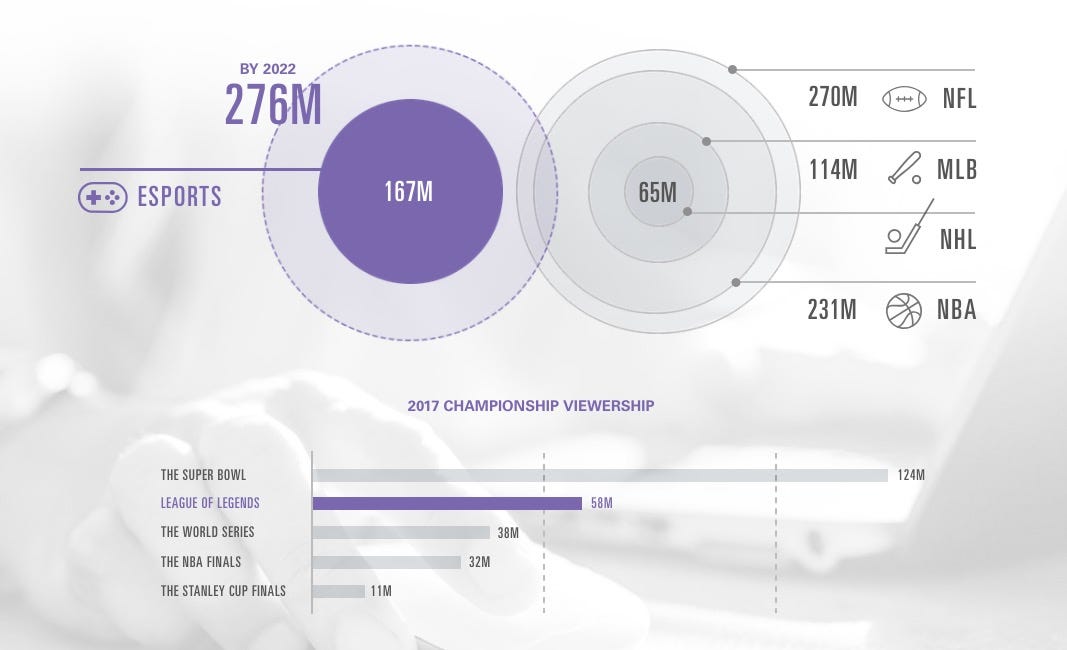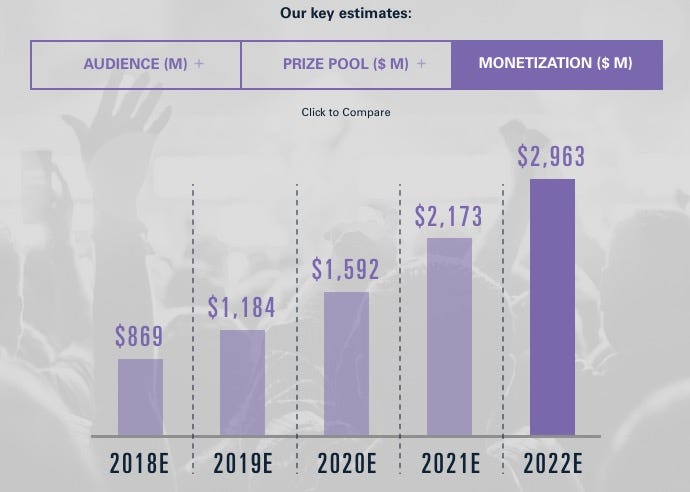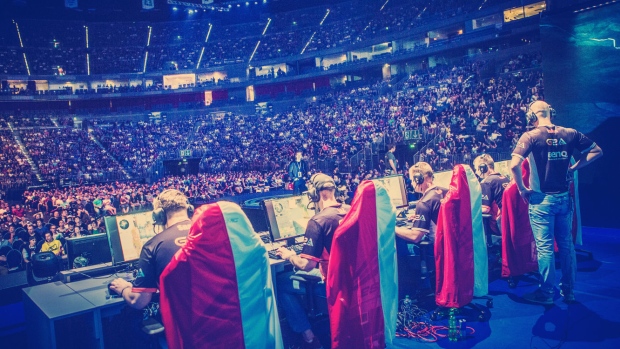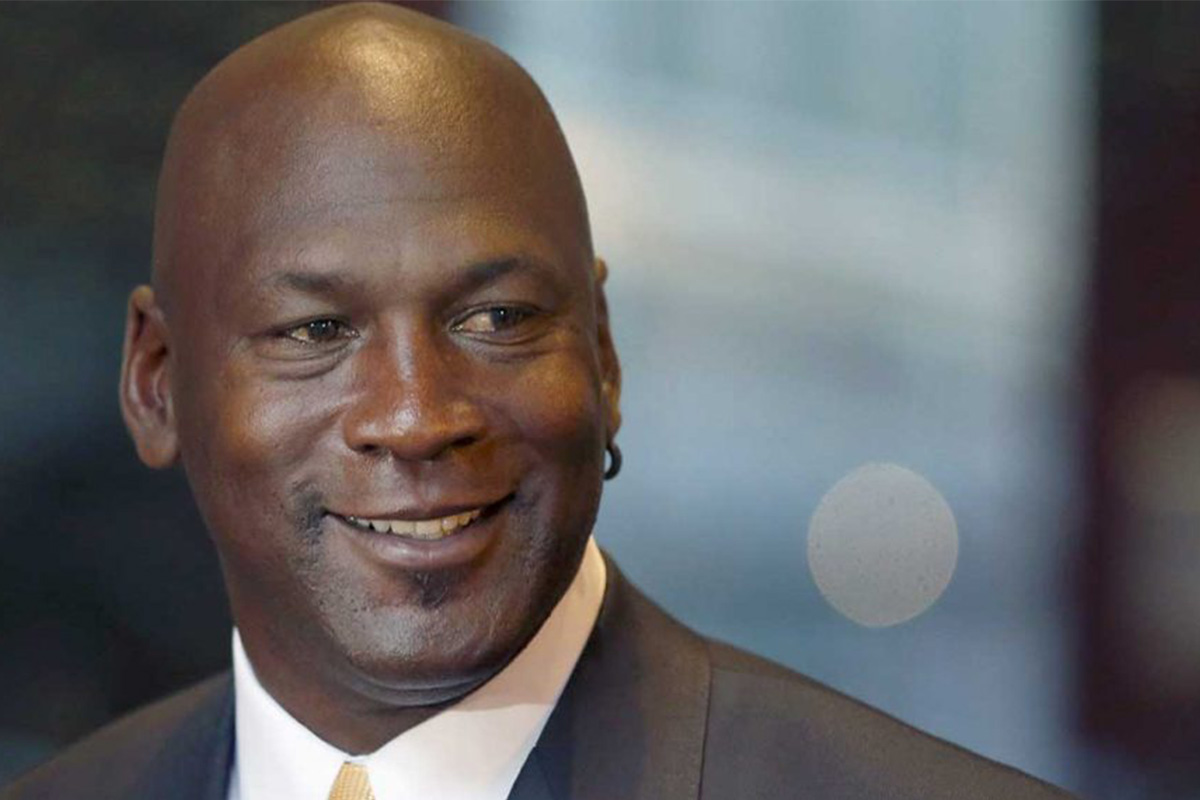
- The esports industry relies on the legacy sports broadcast model for monetization, but there are new, advanced interactive technologies on the scene bringing amazing opportunities for the financial juggernaut that esports is.
That means advertising, sponsorship, merchandising, ticket sales, media rights, teams and leagues, formal coaching and mentoring, building up some stars, and having big events. What was a little different was putting it all online.
“That could not have made more sense,†Singer says. “It’s exactly what you needed to do. You took the prior business model and applied it. Check all the boxes and make sure you do it correctly. But if you’re looking at the future of esports, what are the new opportunities?â€
The way esports is structured, a lot of it seems very similar to traditional sports, he adds. There are two or four guys (usually guys) with suits and headsets, and they’re calling the match, and sometimes you’ve got a commercial break. But within that paradigm there are ways to innovate, and there are ways to bust out. There are three key innovations that can take esports into the future, Singer says: relevance, value, and choice.
Relevance means that if you’re going to be advertising-based, the advertising needs to get better. It needs to get more targeted. How can you get viewers to consume your ads? What are they going to get in return?
“There’s room for innovation there, because this is almost a purely online audience,†he explains. “This is so different than what people think when they think about a sports audience. Obviously, a lot of people know a lot about digital advertising, but they need to take that learning, see where that industry is going, and apply it to esports.â€
The next piece, he says, is value, particularly value to the viewers. It could look like a simple exchange: You give me an ad and I get to watch my content. But what does that experience look like and how does it interrupt my experience?
Right now companies are leaping in to take advantage of the opportunities this offers. Veracity is offering a blockchain system in which viewers make decisions around how many ads they’re willing to watch or listen to, in exchange for a certain amount of match viewing time. Advertisers put money into the blockchain system, and in the end, pay broadcasters solely based on viewership.
The last area ripe for innovation is the sport itself, or the difference in the way that audiences think about games versus the way they think about traditional sports.
“I hate to use the example of the Hunger Games, because it’s about sending children off to their deaths, which is terrible, but in that model, these viewers in the Capitol were able to engage with what they were watching by banding together, collecting some money, sending little air drops out for people,†Singer says. “Is that kind of engagement something that we can see in esports? How do the game-makers make that “fair†or reasonable? Is that something that audiences want? Is that something the players would tolerate?â€
There’s a tremendous amount of opportunity around viewer interactivity for esports, in ways that would never fly in traditional sports.
“No one’s going to throw an extra basketball onto the court,†Singer says. “Or if you do, you’ll get kicked out of the stadium.â€
Also part of the interactive piece is the opportunity to play with viewer perspective, as in how do viewers consume their matches. Do you follow one player? Where are the cameras, and why are they there? Companies are working hard now on innovating around how viewers watch and interact with the match, and how to translate that into engagement and new monetization opportunities.
In the end, there’s one very specific line of thought, Singer says, which is that esports doesn’t need traditional television, because it already has established itself. Esports is making money, and there are people making money in it. It’s respected by the people who watch it and enjoy it, and viewer numbers are skyrocketing.
“So don’t get me wrong — all of the traditional stuff is working,†he says. “The question is, where does it go from here?â€
To learn more about how to merge the traditional esports model with the new, where the profit is coming from, and even more innovations coming down the pike, don’t miss this VB Live event!
Source: https://venturebeat.com/2018/11/13/esports-monetization-is-set-to-evolve-in-new-amazing-ways-vb-live/










